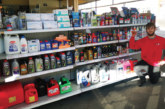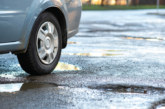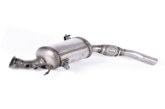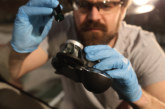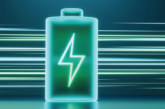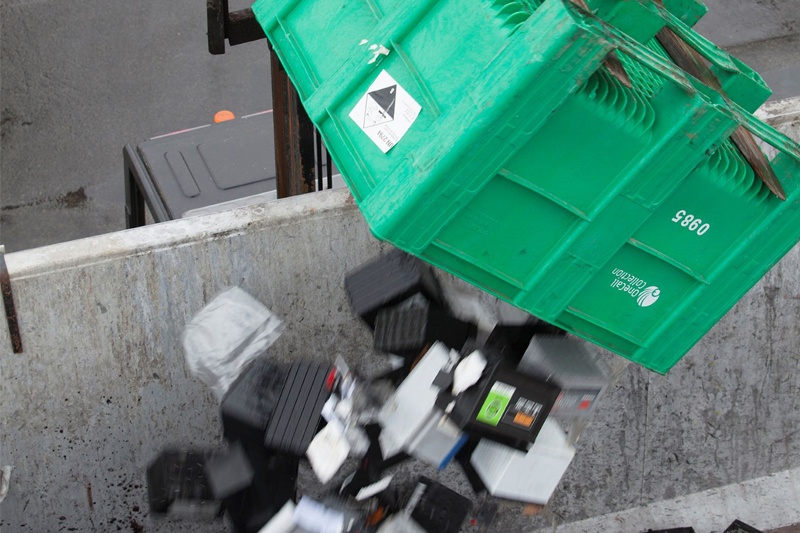
Ecobat Battery Technologies explores the potential future of the automotive battery market, and the role that lithium might play.
According to figures released by VARTA, Ecobat Battery Technologies’ (EBT) long-term battery partner, almost 90% of the cars manufactured this year will feature start-stop technology and by 2020, so will more than 30% of all those entering the independent workshop. This equates to approximately 900,000 vehicles – all of which must use the correct batteries, specifically designed for these systems, otherwise they will malfunction and the batteries might potentially fail.
As EBT therefore advises, it is imperative that motor factors not only supply their valued workshop customers with an appropriate replacement, but they also encourage technicians to follow the correct procedure during its installation.
It is wise then for factors to begin by being specific about the vehicle when they are taking an order, and not just opt for a like-for-like replacement of the battery already fitted. Without checking, there is no guarantee that it is necessarily correct.
The onus is therefore on the factor to ensure that, if the vehicle is equipped with a start-stop system, it receives either an absorbent glass mat (AGM) or enhanced flooded battery (EFB) of the necessary capacity. To supply a traditional SLI (starter, lights and ignition) battery for one of these vehicles will ultimately result in its failure, as well as a subsequent warranty claim.
Additional challenges facing the independent sector include where the battery is located, as only 58% of applications are now in the traditional under the bonnet location, with 40% in the boot and the remaining 2% – that’s 80 models – situated in the passenger compartment. An added complication is the time required to fit these batteries, which can sometimes be four times longer than the time taken to fit the previous generation of batteries. This however, should be looked upon as a benefit, as unprofitable ‘free fitting’ sales gestures will have to become a thing of the past. Workshops should be encouraged to sensibly charge for the time genuinely needed to fit them.
The growth in the number of start-stop equipped vehicles has been driven by the need for vehicle manufacturers (VMs) to reduce the emissions their vehicles produce, in order to conform with legislation from governments around the world. But what of the future and the apparently unstoppable force behind the move to all electric vehicles?
The electric movement
As can be seen from any consumer car magazine, VMs are gearing up for a significant increase in their electric vehicle production and they therefore anticipate the sales growth of these vehicles to continue. This move is in concert with many governments increasing their efforts to reduce carbon emissions and toxicity levels far beyond the concentrations achievable with even the most advanced internal combustion engine vehicle.
Although the use of lead acid batteries is expected to continue to feature, possibly in a dual battery format, even if the lack of infrastructure to charge electric vehicles acts as a temporary restraint, with the constant rumours of the development of alternative battery technologies, there is no doubt that the number of lithium batteries fitted in these electric cars is set to increase. Then, lithium batteries will play a greater role in powering the cars on our roads for the foreseeable future.
‘Source to Safe’
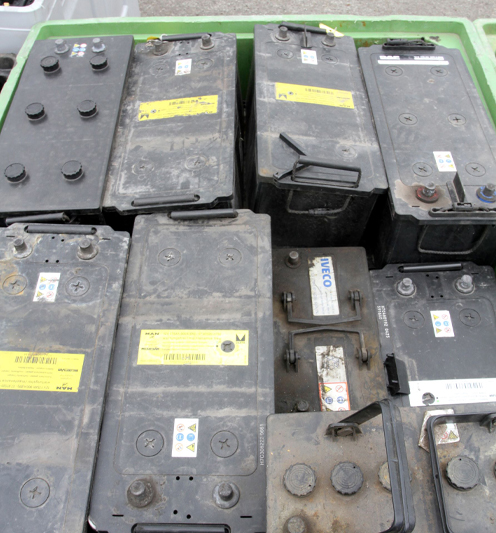 As the volume of lithium increases, so does the demand from the VMs, original equipment battery manufacturers (OEM) and subsequently the aftermarket, for a competent service for the safe collection of used and damaged lithium batteries.
As the volume of lithium increases, so does the demand from the VMs, original equipment battery manufacturers (OEM) and subsequently the aftermarket, for a competent service for the safe collection of used and damaged lithium batteries.
There is substantially more behind the Ecobat group than is generally known. Besides – under the guise of EBT – being a specialist battery distributor, through its Ecobat logistics arm, it is also a collector of used and damaged lithium batteries; with operations in Germany, France, Italy, Poland, Norway, and the UK. As a result, Ecobat is working with a number of leading OEMs to develop a suitable collection system.
The ‘Source to Safe’ model offers a competent and reliable service and as an endorsement of its capabilities, Ecobat is one of the few companies in Germany that is legally permitted and certified to transport critically damaged lithium batteries, under special conditions, having demonstrated that it has the physical equipment, processes and procedures, as well as the technical competence to undertake this activity.
In the UK, through its Ecobat Logistics (formerly G&P Batteries) operation, Ecobat is the market leader for waste battery collection and has invested significantly to ensure it is able to offer a fully compliant lithium battery collection service, including customer site visits by technical support staff, the completion of specific transportation risk assessments and guidance to ensure the lithium batteries are appropriately packed before transporting them to a modern sorting facility.
When the lithium batteries arrive at the group’s sorting area, they are immediately placed into a holding zone (HZ), which is a concrete bunkered, sacrificial building with CCTV and thermal detection systems. Batteries will stay in the HZ until a dedicated lithium team are able to sort and repack the material ready for onward shipping, to a facility where the materials will be processed, often through controlled incineration.
Mixing lithium batteries with other battery chemistries can easily lead to battery fires. It is therefore extremely important to isolate used or damaged lithium batteries and contact a professional collection company for their safe disposal.
From the perspective of the motor factor, all this might seem somewhat daunting. However, just like the growth of technologies such as semi-autonomous advanced driver assistance systems (ADAS) and the equipment required to recalibrate the camera and radars they utilise, these developments will inevitably arrive, which is why they need to be working with a battery partner that is able to help them embrace it when it does become reality.
Investment in managing the end of life process for evolving battery technologies is just one aspect which sets the Ecobat group apart.

